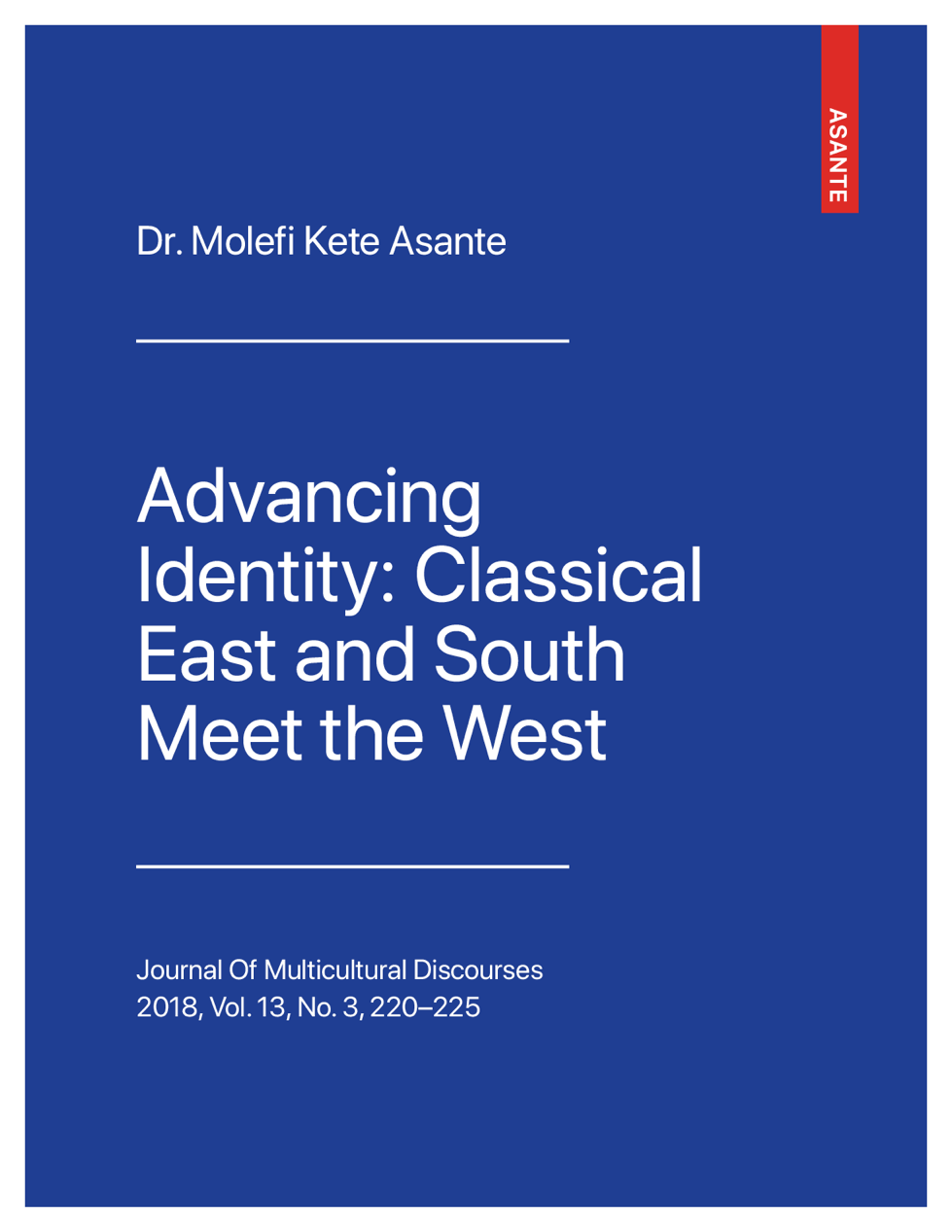Advancing Identity: Classical East and South Meet the West
by Molefi Kete Asante
Journal of Multicultural Discourses, 2018, Vol. 13, No. 3, pp. 220–225
Abstract
Jing Yin’s brilliant analysis of the narrowness of postmodernism is a contribution to broadening the discourse on identity and agency. As one who has examined the nature of identity in African contexts, including the meaning of personhood, the self, and community, I applaud this contribution because it adds texture to a world discourse in a bold way (Asante 1998).
In many respects, Yin’s approach continues a provocative and necessary confrontation with notions of Western exclusivity promoted as universality (Asante 2006). By bringing to her theorizing the classical models of ancient Egypt and China, she has captured the preGraeco-Roman origins of human philosophizing and has provided to the general discourse other ways of looking at identity. Perhaps out of such intellectual richness will come more sensitive approaches to the human condition.
Yin’s common dimensions of collectivity, morality, sensitivity, transformability and inclusivity serve as pillars for a thorough discussion of the views of Asians and Africans on the issue of identity. I have read Yin’s essay with great interest because she has elucidated points and views that have circulated in fields as dissimilar as communication, anthropology, Africology, literary studies, and sociology.
Delving into the substantive territory of Asian and African values, something Westerners have rarely done because they assume the universality of their own views, Yin has explored concepts such as the classical African Maat (order, harmony, balance truth, righteousness, justice and reciprocity) and the Confucian tiansheng rencheng (天生人成) [Heaven gives birth to it, humans complete it].
Identity in the West is often related to standing out in the group, demonstrating presence, even aggression, as a form of individualism. This is often considered the best way to show importance, goodness, and selfness. This is why the idea of choice is key to this notion of identity. Children are given the option to choose what they want to do or want to be. They are often asked at an early age what they want. Hence, the child’s preference suggests, to the Westerner, that free will is being asserted in a way that shows individuality.
You might also be interested in:
The History of Africa
Being Human Being
100 Greatest African Americans



